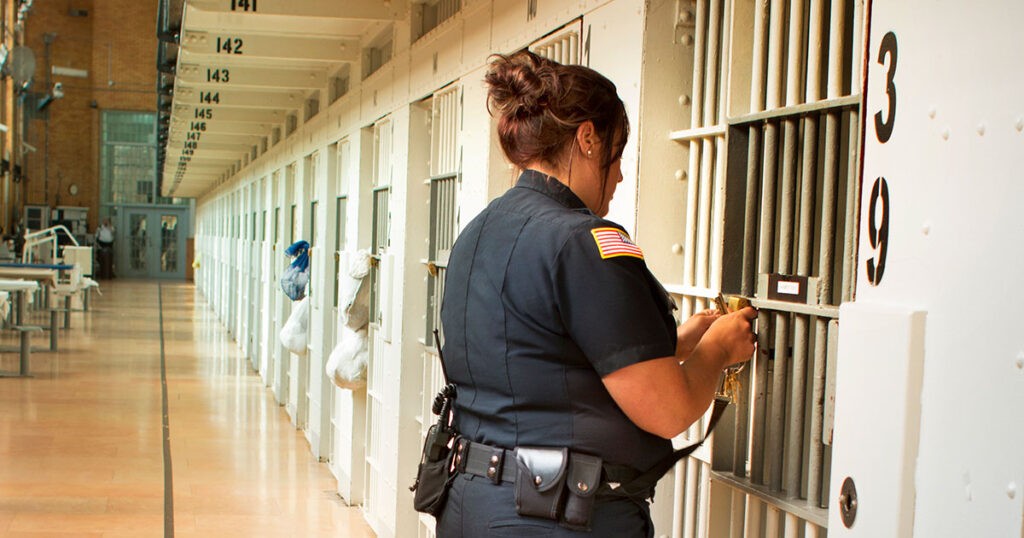By Stacy M. Brown
NNPA Senior National
Correspondent
A scathing report released by the Department of Justice (DOJ) Inspector General Michael E. Horowitz unveiled a disturbing pattern of operational and managerial deficiencies within the Federal Bureau of Prisons (BOP), shedding light on the alarming rate of inmate deaths.
The report, covering the years FY 2014 through FY 2021, scrutinizes 344 deaths in BOP institutions and points to a multitude of issues, notably suicides, homicides, accidents, and a concerning number resulting from unknown factors.
Suicide Epidemic: BOP’s Alarming Shortcomings Revealed
Suicides emerged as the predominant cause of death, constituting over half of the 344 cases investigated. The DOJ Office of the Inspector General (OIG) identified recurring policy violations and operational failures contributing to inmate suicides. Among the highlighted deficiencies were lapses in staff completion of inmate assessments, inappropriate Mental Health Care Level assignments, and the heightened risk associated with single-celled inmates. The report uncovered a lack of coordination among staff departments, hindering the provision of necessary treatment and follow-up for distressed inmates.

Furthermore, a glaring oversight revealed that the BOP failed to provide evidence of completing the required mock suicide drills essential for staff readiness. The report found that, despite a significant drop in the overall inmate population, plummeting from 214,149 in 2014 to 144,448 in 2021, the number of suicides within the BOP system surged.
The report also spotlighted BOP-run facilities failure to conduct mandatory “mock suicide drills.” Investigators said 67 out of the 194 BOP facilities were unable to provide evidence of running a single mock suicide drill between 2018 and 2020, violating the required three drills per year, one for each shift.
Insufficient Emergency Response: BOP Staff’s Failures Exposed
The OIG’s findings underscored significant shortcomings in the BOP’s response to medical emergencies, with almost half of the inmate deaths reviewed reflecting inadequate reactions. From a lack of urgency and unclear radio communications to issues with naloxone administration in opioid overdose cases, the report paints a picture of systemic failures compromising the safety and well-being of inmates.
Information Void Hinders Prevention: BOP’s Limited Understanding of Inmate Deaths
A critical revelation emerged regarding the lack of available information about inmate deaths, hampering the BOP’s ability to prevent future fatalities. The report exposed the BOP’s inability to produce required documents following an inmate’s death, limiting their understanding of circumstances leading to deaths and impeding the identification of preventative measures. The OIG also highlighted the absence of in-depth action reviews for inmate homicides or fatalities resulting from accidents and unknown factors, further limiting the BOP’s capacity to learn from these tragic incidents.
Operational Challenges: A Recipe for Disaster
Long-standing operational challenges such as contraband interdiction, staffing shortages, outdated security systems, and staff non-compliance with policies were identified as contributing factors in nearly one-third of inmate deaths. The report singled out 70 inmates who died from drug overdoses, emphasizing the pressing need for comprehensive reforms to mitigate these risks.
Recommendations for Reform: BOP’s Pledge for Change
The OIG proposed 12 recommendations to address the root causes of inmate deaths. In a rare show of unity, the BOP has pledged to implement all the recommendations, signaling a commitment to rectify these systemic issues, and upholding its duty to ensure inmates’ safe and humane management.
The report concluded that chronic understaffing contributed to multiple failures in the BOP. “The report is an urgent call to action. No family should ever have to receive a call that a loved one has died while incarcerated simply because a facility was understaffed, under-resourced or out of compliance with BOP policy,” Inimai Chettiar, Deputy Director for the Justice Action Network, said in an emailed statement.
“There is strong bipartisan support for comprehensive oversight of our nation’s prisons, and it is long past time for congress to enact the kind of transparency and accountability that will prevent deaths like these in the future. We are encouraged by Senator [Dick] Durbin’s prompt commitment to hold a hearing in the wake of the report’s release. Families of the deceased, and those whose sons, daughters, brothers, and sisters are being detained in federal facilities right now deserve immediate attention.”




